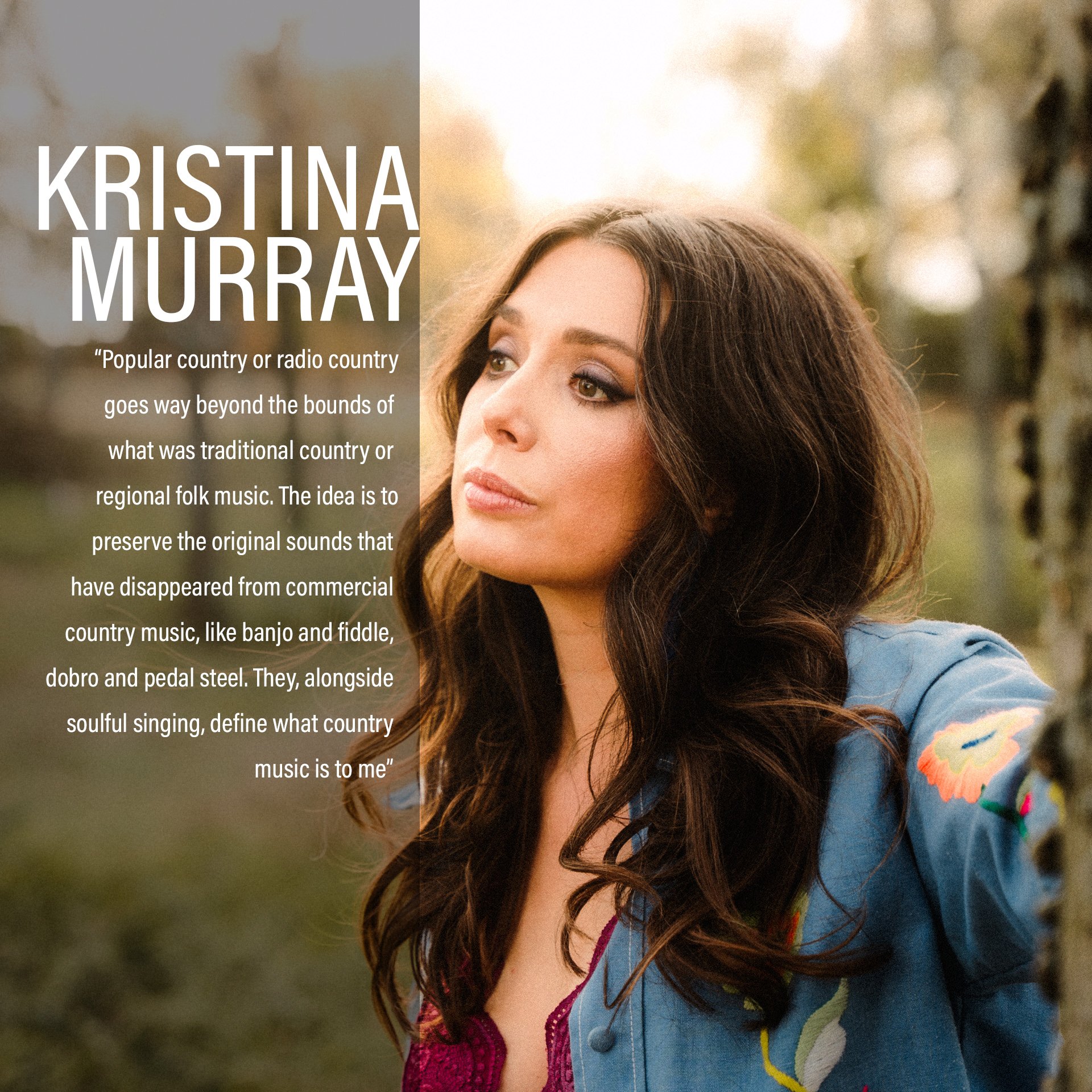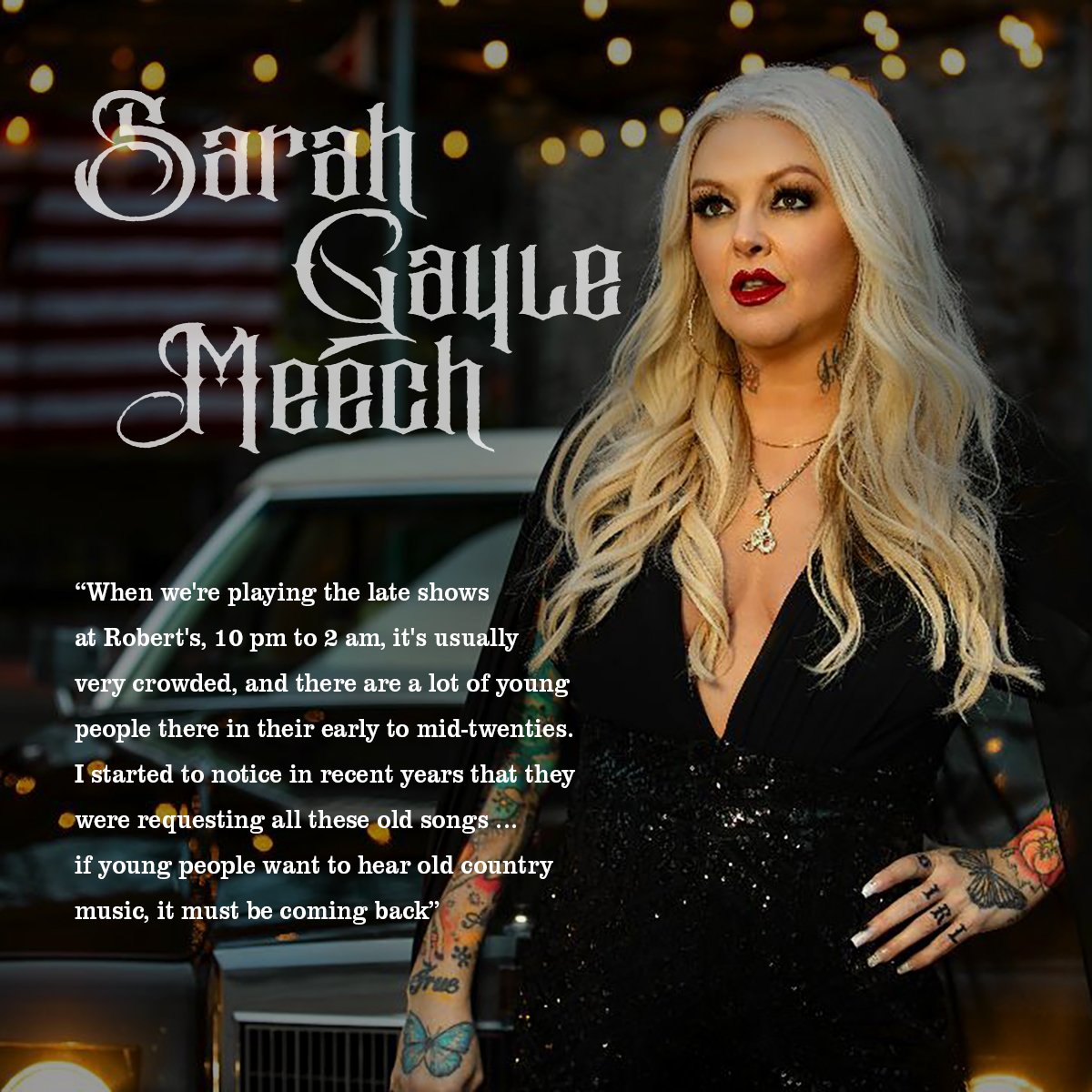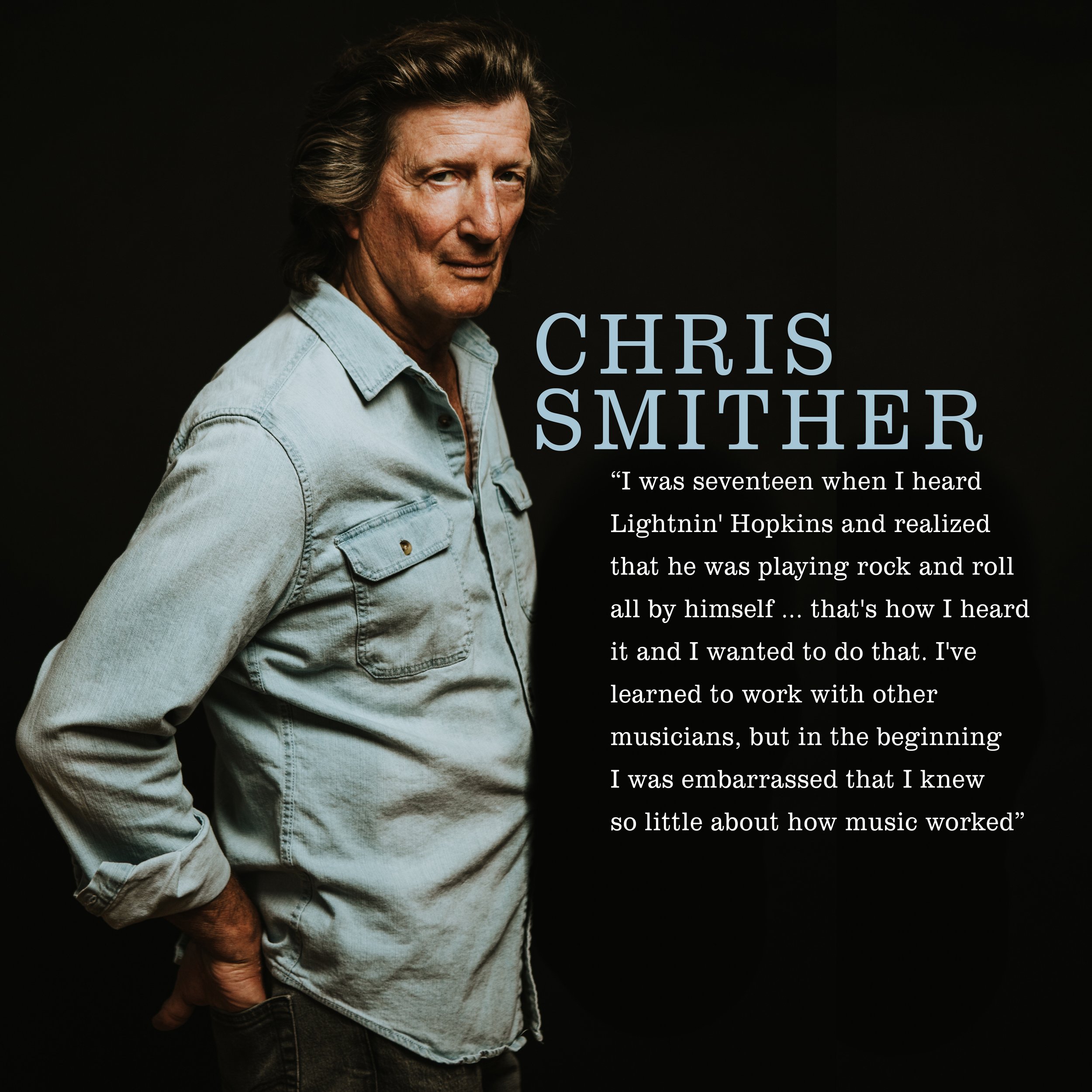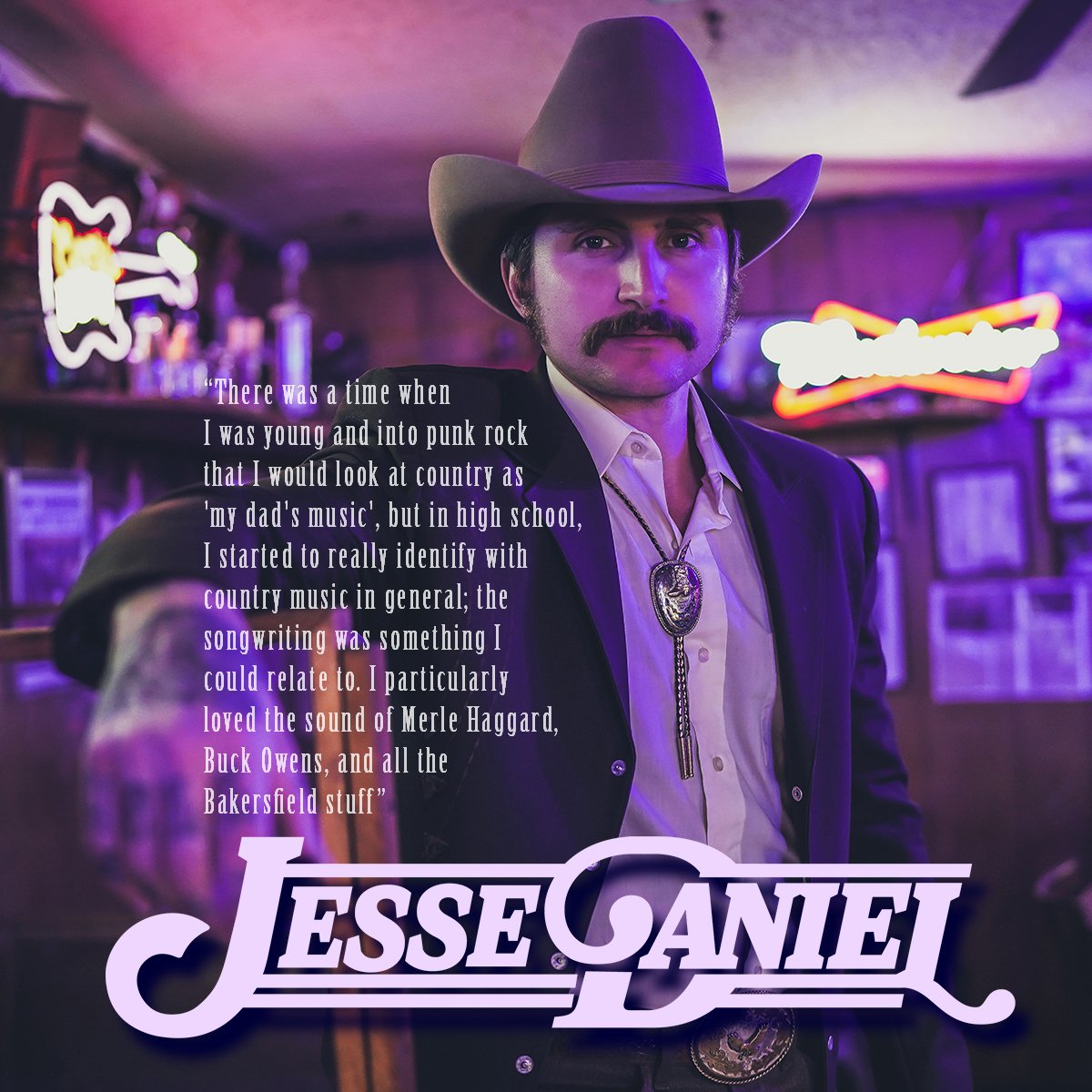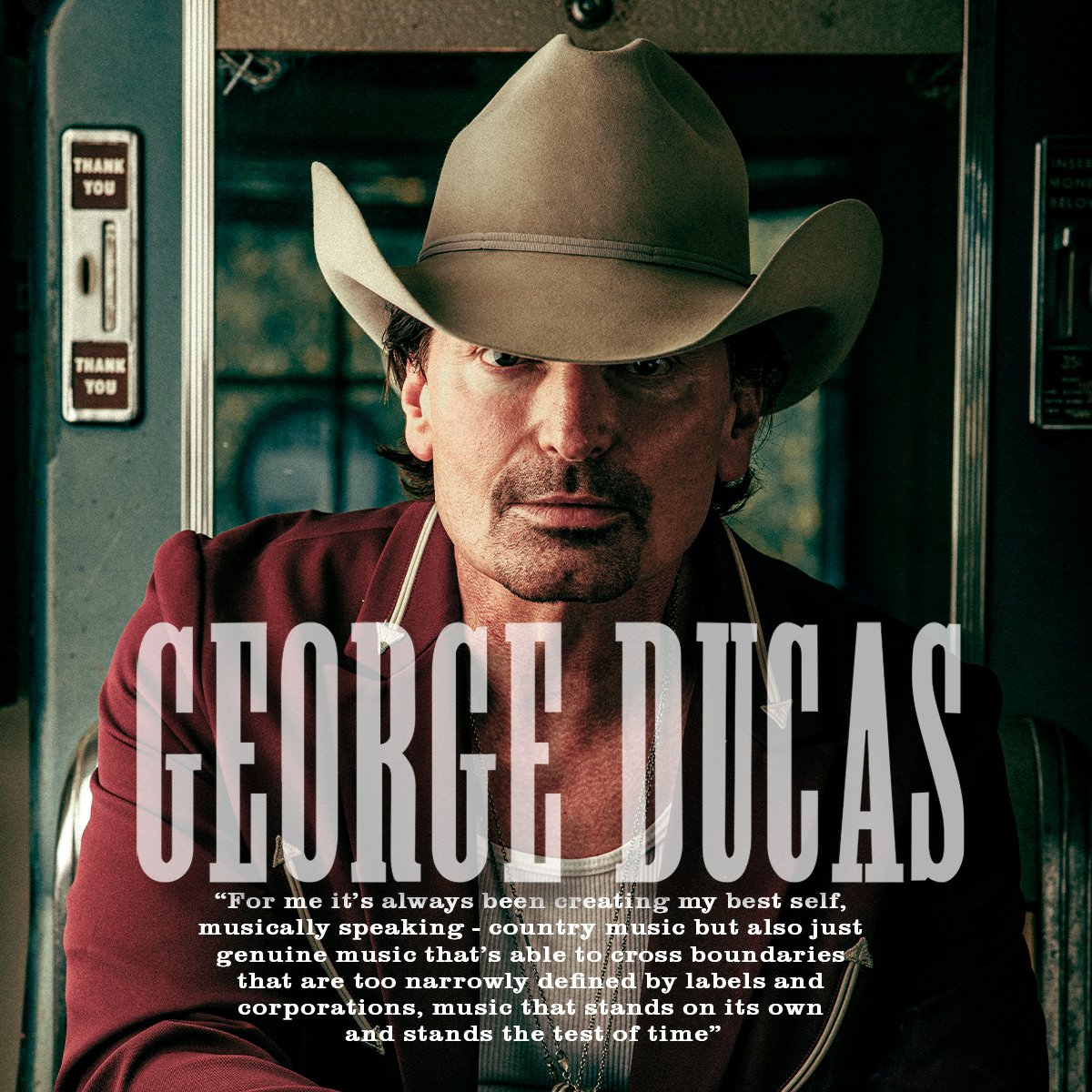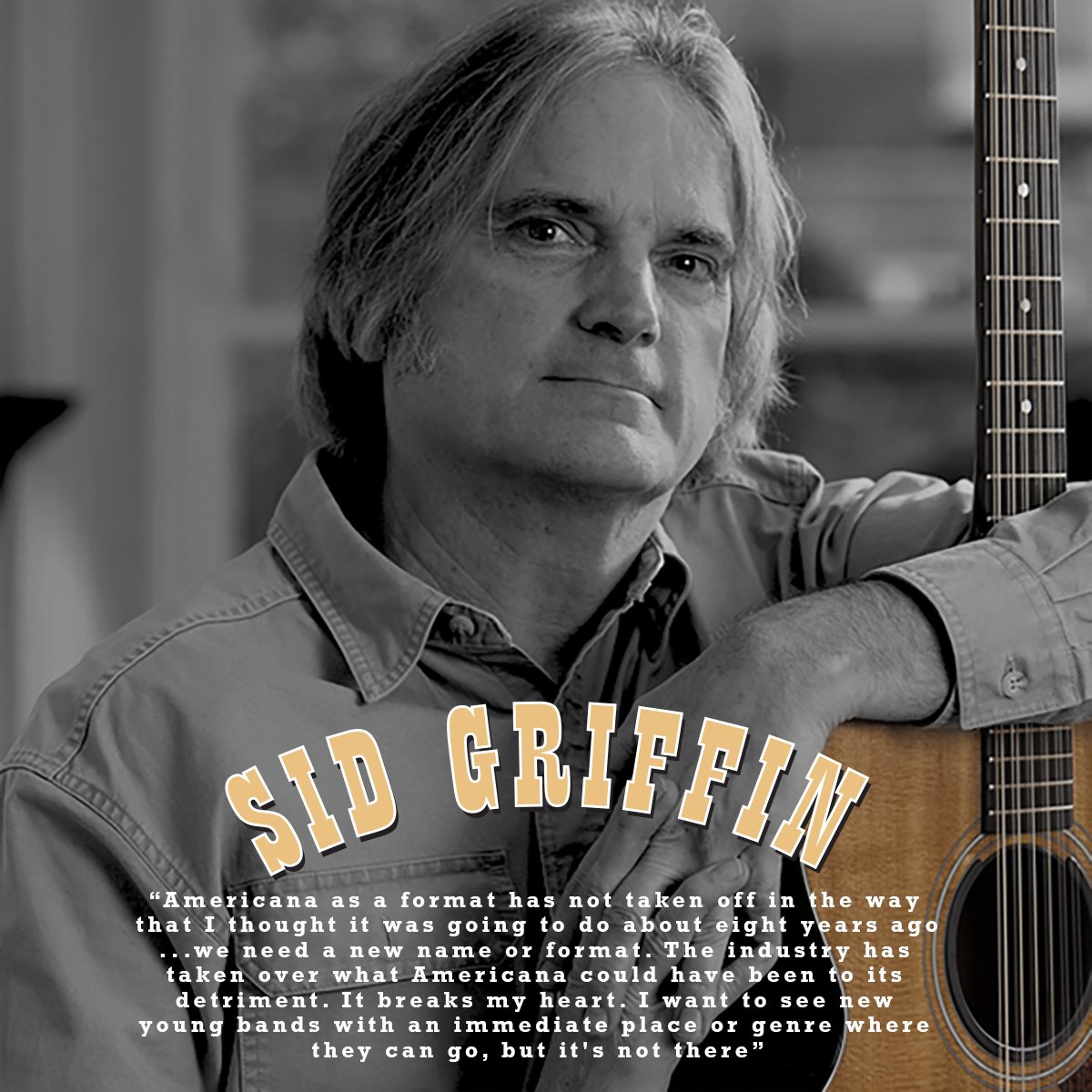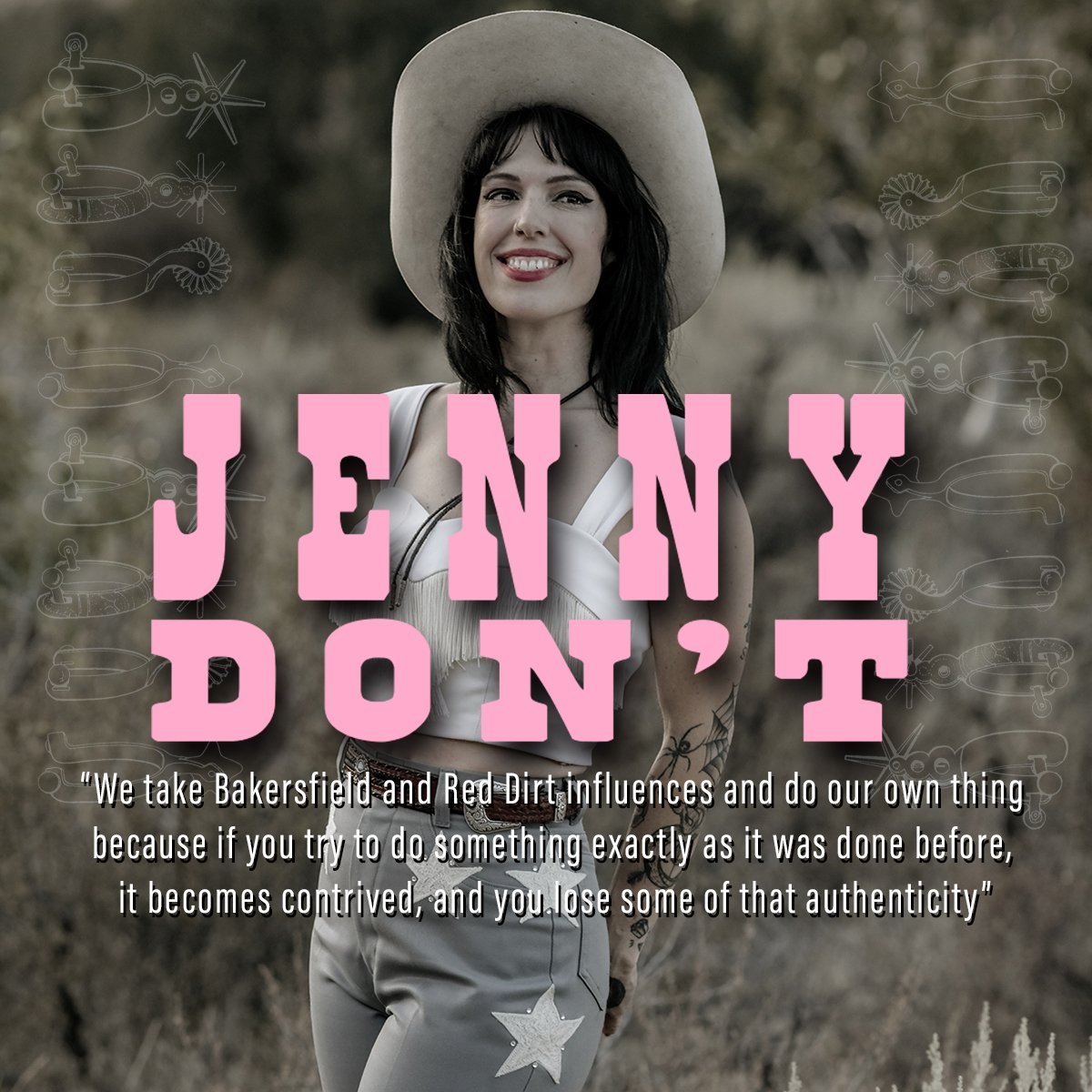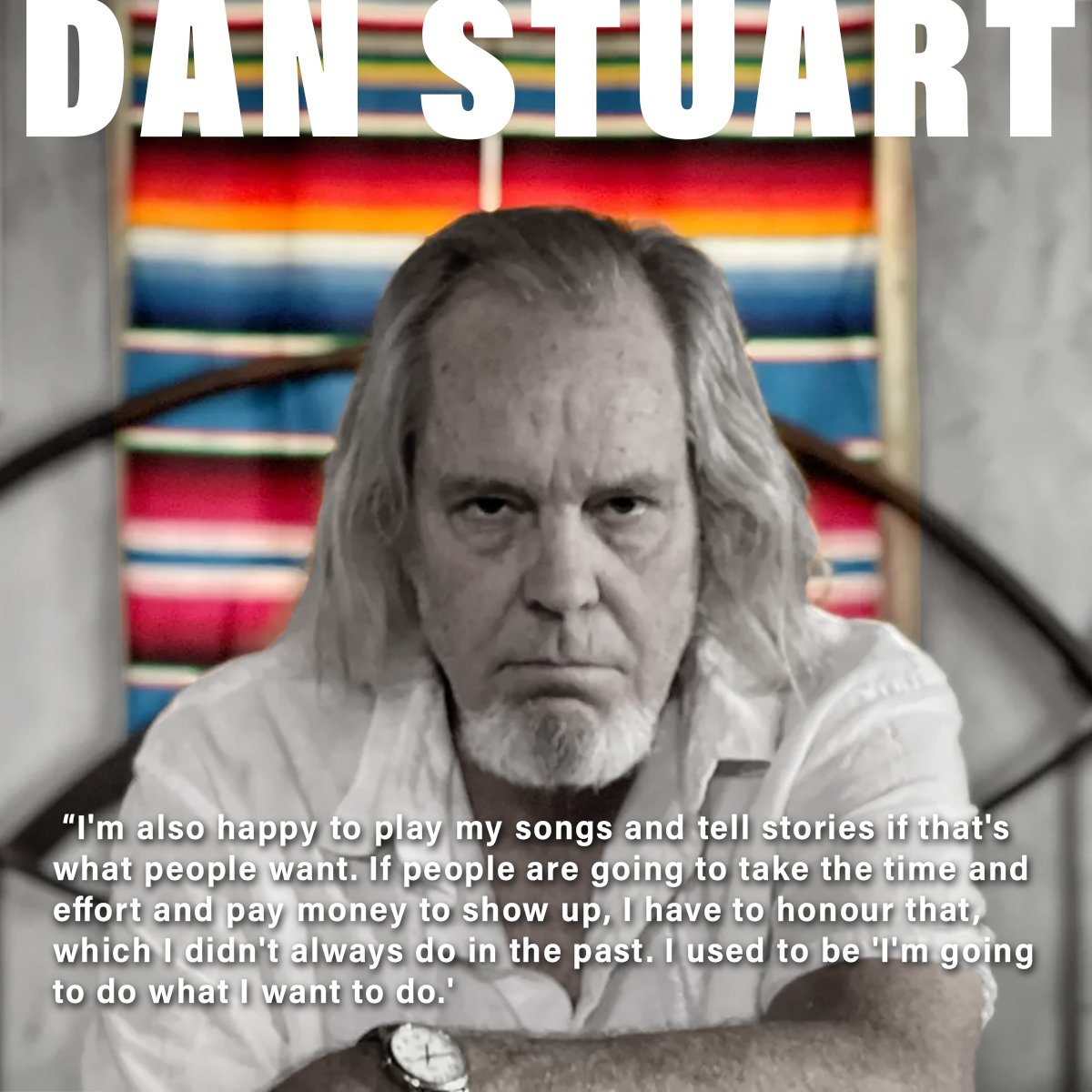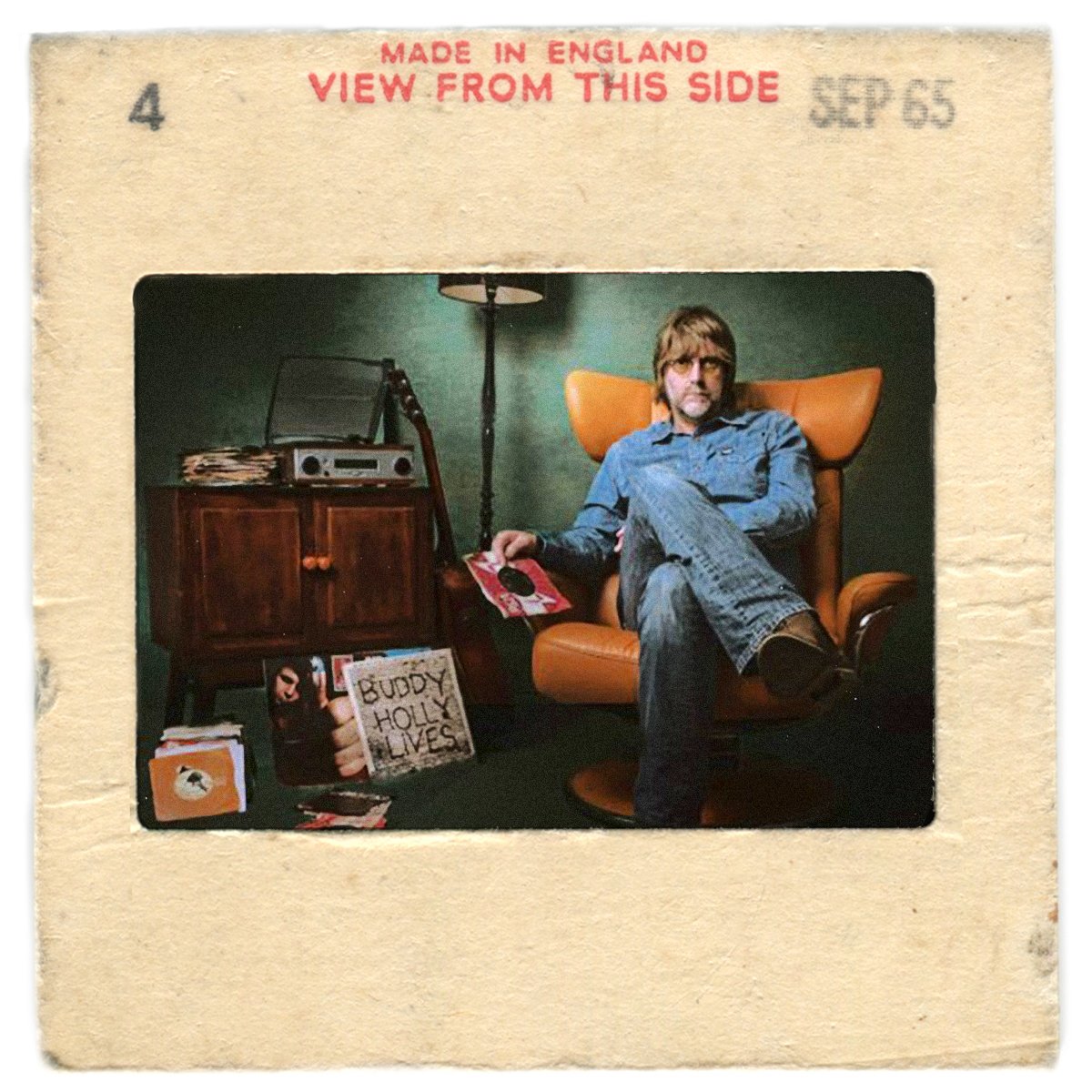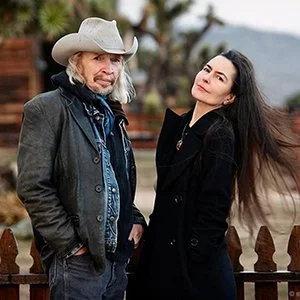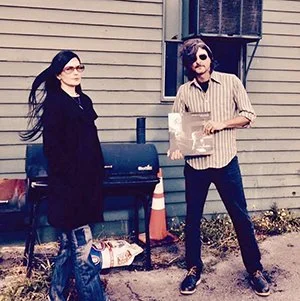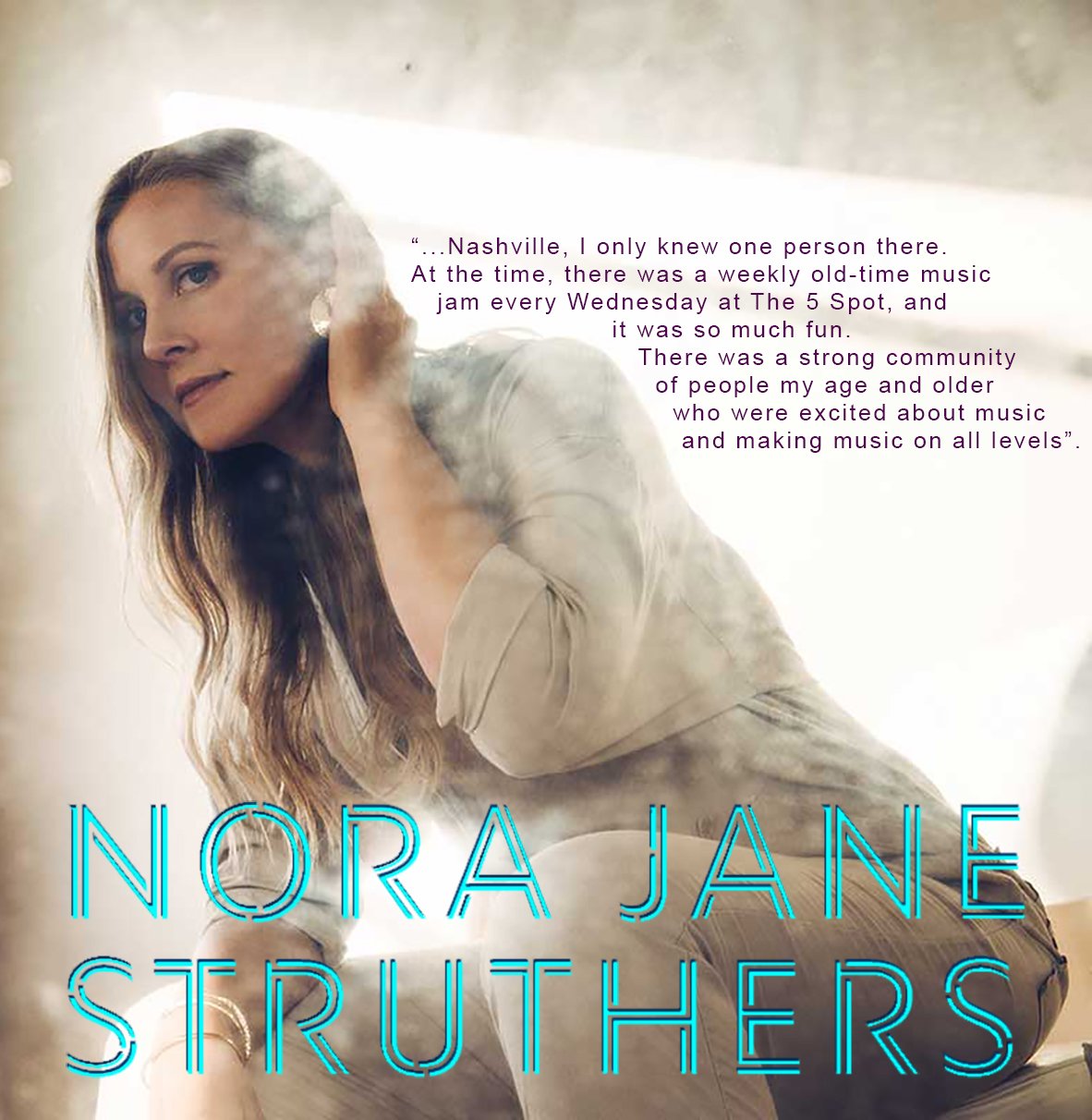Kristina Murray is a Nashville-based country singer and songwriter. Over her fifteen-year performing and writing career, she has remained steadfastly loyal to traditional country music, avoiding the temptation of crossing over to the commercial crossover county/pop music currently dominating the radio airwaves. Kristina is also the Administrative Director at The Nashville School Of Traditional Music, a project established to promote and preserve ‘real’ country music. She has recorded two albums, UNRAVELIN’ (2013) and SOUTHERN AMBROSIA (2018), and is putting the final touches on her latest record, which is due for release in early 2025. We recently chatted with Kristina as she enjoyed a family holiday at Edisto Island, South Carolina, before packing her bags for a fourteen-date European tour.
You are about to reach a tenth anniversary since moving to Nashville.
Yes, ten years in mid-June. It feels like ten years in some ways, and in other ways, it seems like that amount of time hasn't passed. So much has happened in that time span. Sometimes I feel like, 'What's next?' but I also feel excited, and Nashville is my home right now. I initially moved to meet other like-minded musicians and songwriters who were writing and playing the type of music I was into. I've definitely met that goal, which has made me a better writer and musician. Making my second record here and now with my third record ready to be mixed has been great.
I have only recently become aware of The Nashville School of Traditional Country Music and your involvement in the project. How did that come about?
I started working for The Nashville School in the fall of 2022, almost two years ago. My connection was through a friend of mine and the school founder, Meredith Watson; I knew her as a musician. She was in a band called Locust Honey. I was leaving my job at Belmont University and doing a lot of bartending work. I met up with Meredith, and we spoke about what the school needed in terms of administration. Meredith oversees the grander vision for the school, and in 2022, she had a non-profit charter for the school. In 2023, she applied for official non-profit organisation status, which we were granted just a few weeks ago. Adult programming is mostly the focus, but we do a lot of kid's programmes with the local schools, some private schools and home school groups in Nashville. It is focused on learning music through the ears and community instead of through formal lessons. So, instead of learning through reading notation or one-on-one, it's more like getting together and trading music, bluegrass jams, writing songs, and playing country music.
It's promising to hear that those traditions are on offer when what we hear on country music radio stations is mainstream pop music.
Popular country or radio country goes way beyond the bounds of what was traditional country or regional folk music. The idea is to preserve the original sounds that have disappeared from commercial country music, like banjo and fiddle, dobro and pedal steel. They, alongside soulful singing, define what country music is to me. It is exciting because there is a desire out there to keep our music alive. The concept of an organisation attempting to preserve types of music is not new; there are folk schools in Louisville, Kentucky, and Denver has Swallow Hill. Meredith was just surprised that there wasn't an organisation encompassing all that in Nashville and decided to start the school back in 2017.
Your role as Administrative Director sounds very posh.
It's not posh at all, just a necessity that has to get done (laughs). At the beginning of the school semesters, I mostly oversee the school and kids' programmes. Last year, I taught songwriting classes, and J.P. (Harris) taught clawhammer banjo beginner classes; we also had fiddle classes. My role as Administrative Director involves emailing, overseeing our website, registration, contacting parents about the kids' classes, and thinking forward with Meredith about potentially what type of classes students actually want.
You mentioned album number three. How is it progressing?
It's finished. I even have the cover; it's sequenced, mixed, and ready to be mastered. It's ready to go.
Your last album, SOUTHERN AMBROSIA, often addressed downbeat subjects, although the overall sound was upbeat. Does the new record follow a similar template?
There are a lot of sad songs on it, one happy song and also one love song, which is good. Someone close to me who heard it recently said, “There's no bullshit on it,” which I never want to do, so it's a lot of sad songs and some strange aesthetic mind-warping stuff going on. I hope it doesn't come across as too dark, more so just true.
Who did you work with this time around?
I recorded the album in two chunks, and Rachael More and Misa Arriaga both produced it. A lot of buddies of mine play on the record, I didn't have as much of a hand in the production on my last record, SOUTHERN AMBROSIA, which I was fine with at that time, and we used a lot of session guys on that record. It was fun this time to hand-pick the guys that I wanted, and all of these players are friends of mine whom I really trusted. Guys from my band played, James Paul Mitchell and Sean Thompson played the guitars, Jonathan Beam played bass, Eddy Dunlap played some steel, John Mailander played fiddle on a tune, and a guy named Ilya Portnov was on harmonica on a couple of songs: Jamie Dick, Dominic Billet and Tim Kerr on drums. I've also got a couple of guest vocalists that I'm not naming yet.
Are you fixed on a release date yet?
I would like to find a label home for this record and be able to elevate this record in a way that my last record was not, given that it was independently released. I'm still looking at options, and I had hoped to put it out by the end of the year, but realistically, I'm hoping for early next year and would like to do a single unrelated to the album by the end of the year. I'm telling myself to be patient and that even though the songs may be old to me, they'll still be fresh to everybody else when the album comes out.
We spoke previously about the additional hurdles women face trying to establish themselves in the music industry despite recording some of the best country and American music in recent years. Do you see any change in that regard?
I would agree with you. Over the past four or five years, most of my favourite country and American albums have been by women; some are on labels and elevated, and some are not. But having been in Nashville for ten years and playing music for fifteen years on stage, I'd like to say it's changing, but it is still such a boy’s club, and whereas there might be room for women in the industry, there is certainly not enough room for all of us. It's just something that has been in the industry for sixty or seventy years. If you look at the Instagram account BOOK MORE WOMEN, where they show the lineup at popular music festivals, and, on the next slide, remove the small percentage of all the bands that aren't women-fronted or have a woman in the band. They have shown this over a number of years, and it doesn't seem to be changing at all. It just looks so seismic, and I really don't know what the fix is. We have some women in engineering and production, which is why I feel very proud and excited to have had Rachael More work on my record.
Are you aware if Zephaniah OHora has made any more progress in bringing the Skinny Dennis brand to East Nashville and opening another traditional country music venue?
It has been a while since I have had an update on that, but as far as I know, they have plans for a space that they have on the east side. I hope so, as the American Legion, which is and always will be close to my heart, is insane now on Tuesdays. I hear there are over a thousand people there now on Tuesday nights. You can hardly two-step with people swing dancing on the floor, so the people that go there to two-step can hardly dance there these days. When I moved to Nashville, I really grew up there and was one of the people that got the Tuesday nights started; it wasn't even called honky tonk Tuesday then. But it's more like Broadway there now, so to have Skinny Dennis would be exciting. We'd then have Skinny Dennis, Dees (Cocktail Lounge), The Underdog and The Legion for country music; I'd love that.
You are about to come to Europe to play fourteen dates in eight different countries, including a slot at The Black Deer Festival in the U.K.
Pat Reedy and Todd Day Wait go to Europe yearly, so I'm lucky to be able to go with them. They have great fans over there, and I'm hoping that this tour will establish me in as far as I can go over every year. I was over in Denmark and Sweden in 2018 and was playing a tiny country festival over there, and someone came up to me with my 2013 album with them to be signed; it blew my mind that someone there would have my CD and probably paid fifty dollars to get it shipped from Nashville.
What will the format be?
We'll probably do three 45-minute sets, with me sandwiched in the middle. Obviously, it's a shame we can't bring a band; that's for future years.
Interview by Declan Culliton

